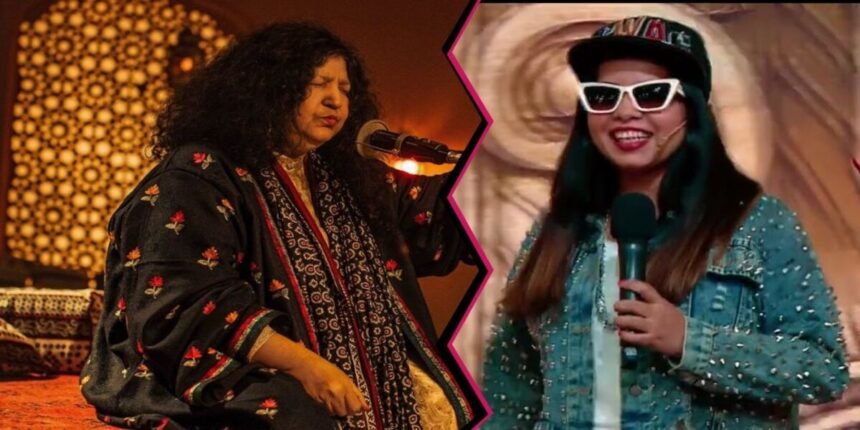Author and former actress Twinkle Khanna has sparked debate with her satirical remarks targeting India’s ongoing unofficial ban on Pakistani artists. In her recent column for The Times of India, Khanna cheekily suggested that viral sensation Dhinchak Pooja should “re-dub all Abida Parveen and Farida Khanum songs” to “teach Pakistan a lesson.”
Her comments come amid a growing wave of digital censorship and quiet erasure of Pakistani talent from Indian entertainment platforms. This includes actors being removed from movie posters and album covers—without formal announcements or government directives.
Also Read: Tristan Tate Sparks Buzz With “Free Imran Khan” Tweet
Khanna recounted her own experience on Spotify, where she noticed that Mawra Hocane, the Pakistani actress in Sanam Teri Kasam, had been edited out of the soundtrack cover. She also cited similar cases involving Fawad Khan (Kapoor & Sons) and Mahira Khan (Raees), who have also been digitally removed from Indian film promotions.
Using biting wit, Khanna wrote:
“Not wanting to be left behind in doing my duty as a good citizen, I propose that we get all of Abida Parveen and Farida Khanum’s songs re-dubbed by our very own Dhinchak Pooja. That will really teach the Pakistanis a lesson.”

These changes reflect a broader trend of informal cultural bans, especially following recent India-Pakistan border tensions, including missile exchanges and diplomatic friction. While no official ban has been declared, Pakistani content has been systematically excluded from Indian digital spaces, leading to public outcry and media coverage.
The controversy has also led to public clashes among actors. Sanam Teri Kasam star Harshvardhan Rane accused Mawra Hocane of calling India’s military action “cowardly,” vowing not to work with her again. Hocane dismissed the claims as a “PR stunt,” while Rane defended his stance.
Meanwhile, the highly anticipated Indo-Pak film Abir Gulaal, featuring Fawad Khan and Vaani Kapoor, has been banned in both India and Pakistan. Its songs have also been removed from YouTube India, further fueling concerns over growing artistic censorship in the subcontinent.


